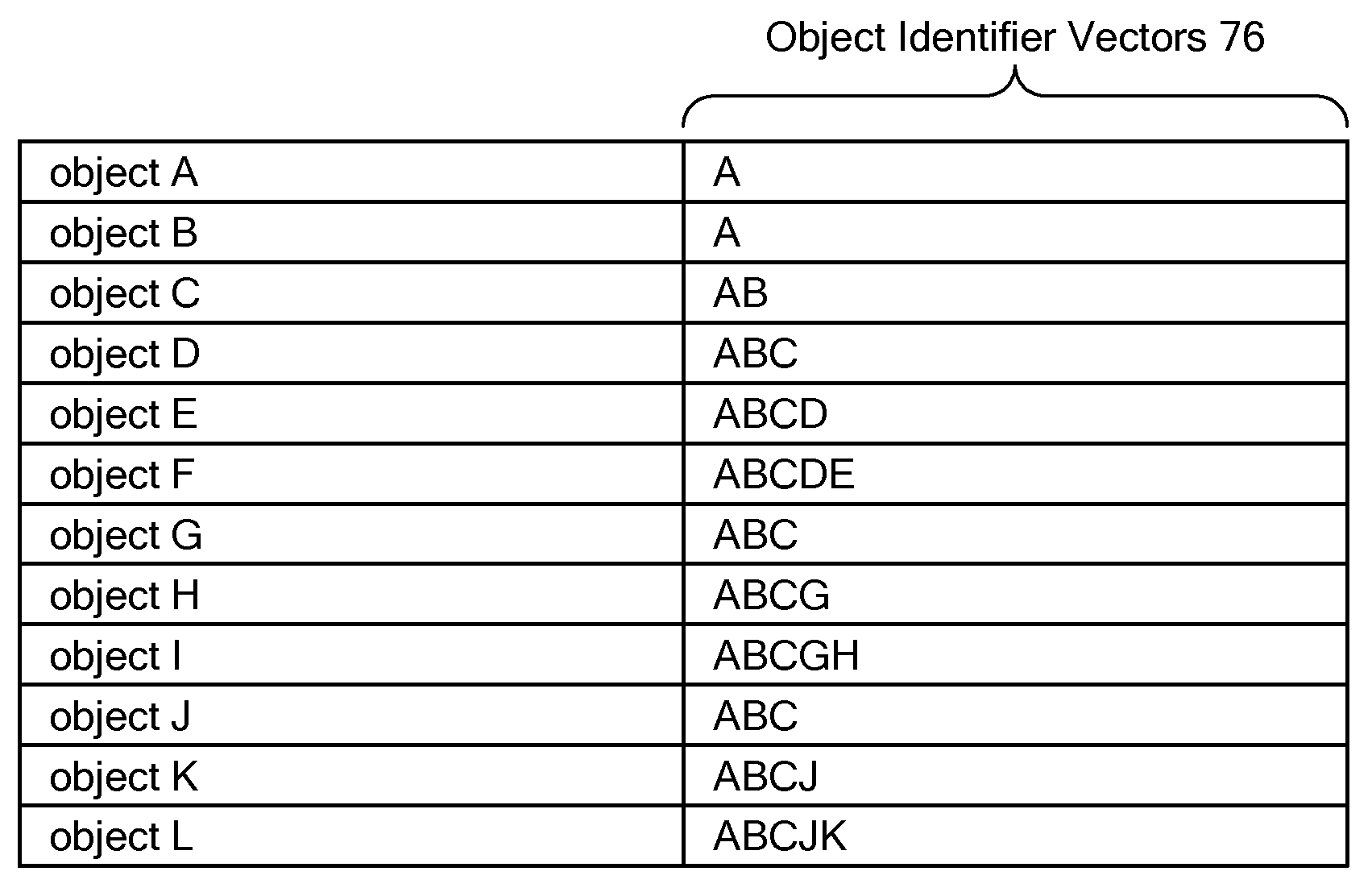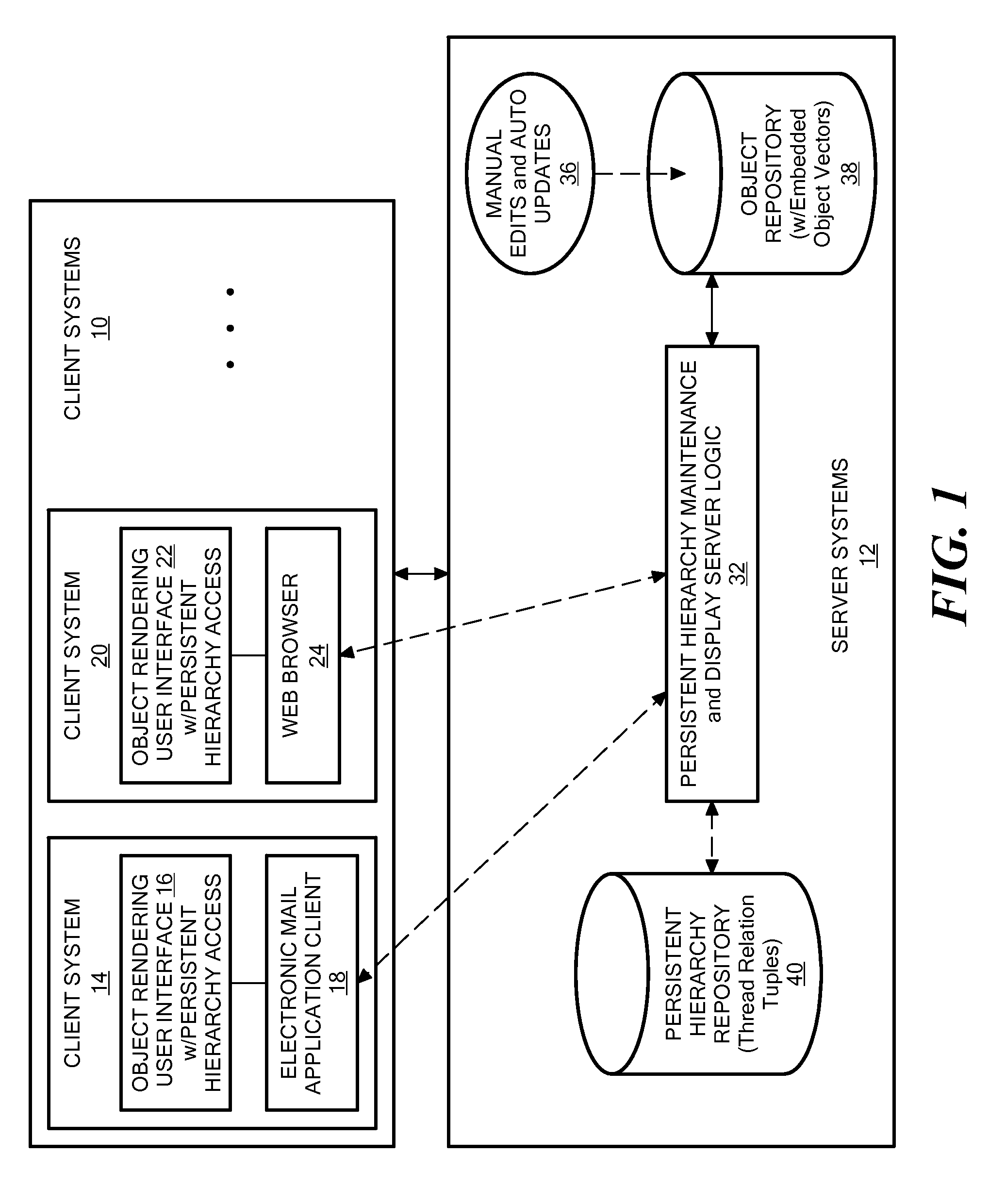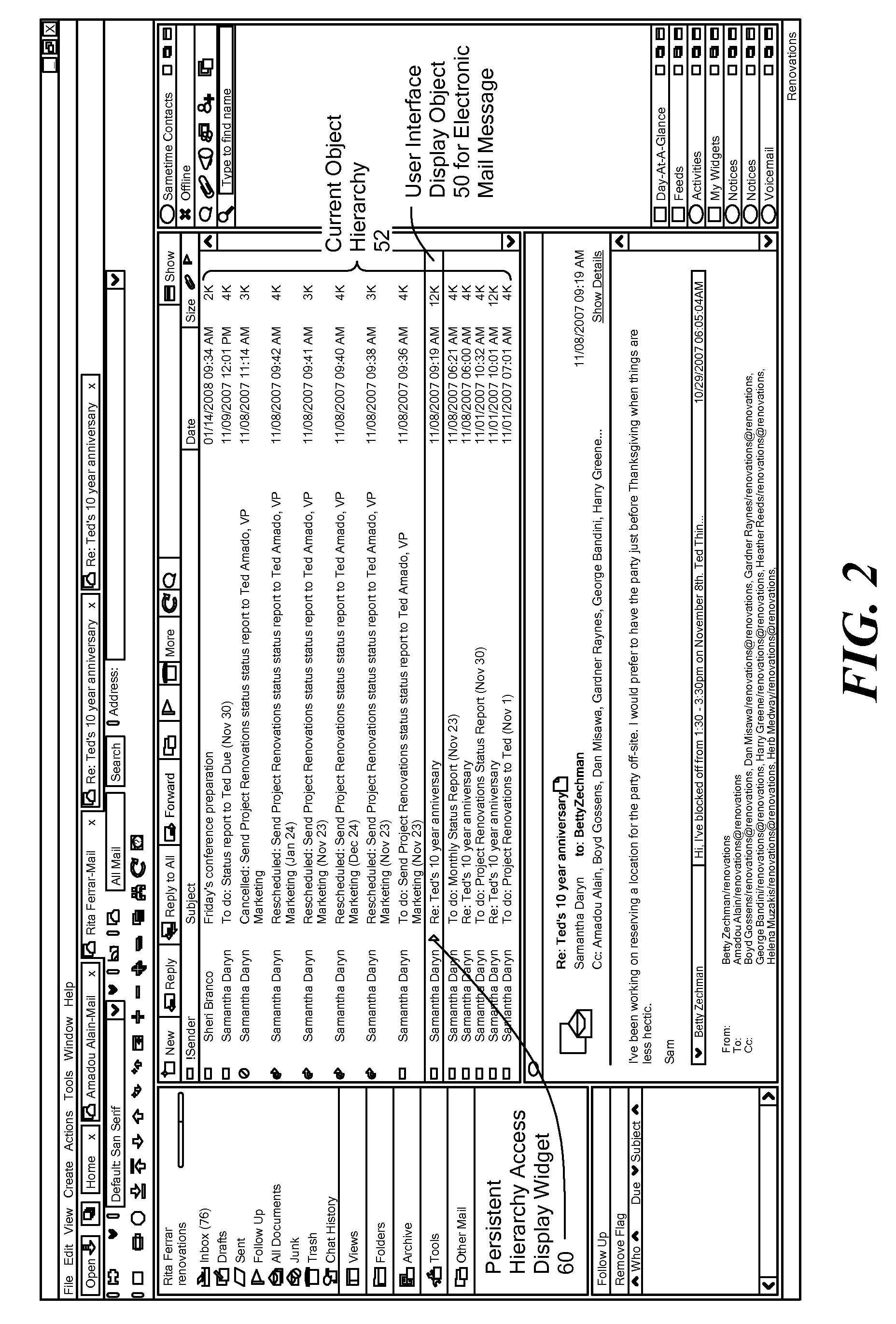Persistent Object Linkage Using Ghosting
- Summary
- Abstract
- Description
- Claims
- Application Information
AI Technical Summary
Benefits of technology
Problems solved by technology
Method used
Image
Examples
Embodiment Construction
[0022]As shown in FIG. 1, an illustrative embodiment of the disclosed system includes a number of Client Systems 10 and Server Systems 12. The Client Systems 10 include a Client System 14 and a Client System 20. Each of the Client Systems 10 is capable of generating a graphical user interface displaying one or more persistently maintained object hierarchies. The graphical user interfaces further include display objects that allow a local user to define or modify persistent hierarchies, and / or to select a persistent hierarchy for display.
[0023]The user interfaces of the disclosed system may be generated in whole or in part by any specific type of application. For example, the Client System 14 is shown including an Object Rendering User Interface 16 with Persistent Hierarchy Access as generated by an Electronic Mail Application Client 18, and the Client System 20 is shown including an Object Rendering User Interface 22 with Persistent Hierarchy Access generated by a Web Browser 24.
[00...
PUM
 Login to View More
Login to View More Abstract
Description
Claims
Application Information
 Login to View More
Login to View More - R&D
- Intellectual Property
- Life Sciences
- Materials
- Tech Scout
- Unparalleled Data Quality
- Higher Quality Content
- 60% Fewer Hallucinations
Browse by: Latest US Patents, China's latest patents, Technical Efficacy Thesaurus, Application Domain, Technology Topic, Popular Technical Reports.
© 2025 PatSnap. All rights reserved.Legal|Privacy policy|Modern Slavery Act Transparency Statement|Sitemap|About US| Contact US: help@patsnap.com



